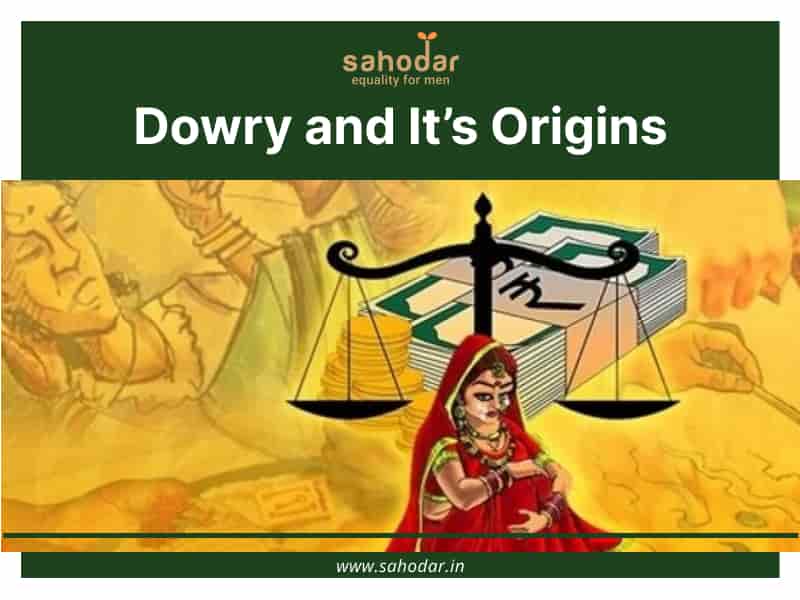Understanding Dowry system (Dahej Pratha)
What is Dowry?
Dowry system is a practice where the bride’s family provides gifts, money, jewellery, utensils, crockery, bedding, electrical appliances, furniture, vehicles or property to the groom and his family as part of the marriage arrangement. While it has historical roots in various cultures, it has often been associated with social and economic pressures. In Arabic dowry is referred as dahej and in the eastern part of India known as Aaunnpot.
History of Dowry System in India
The origins of dowry can be traced back to ancient civilizations. In many societies, it served as a means to secure a bride’s future and ensure her welfare. In agrarian societies, dowries could also provide economic stability.
A court judgement clarifies the legal definition of dowry as,
Dowry Meaning
“Dowry” in the sense of the contemplated by Dowry Prohibition Act is a demand for property of valuable security having an inextricable nexus with the marriage, i.e., it is a consideration form the side of the bride’ parents or relatives, to the groom or his parents and or the guardians for the agreement to wed the bride-to-be.
Article 3 specifies that the penalty for giving or taking dowry does not apply to presents that are given at the time of marriage to the bride or bridegroom without demanding.
Law for Dowry in India
The payment of dowry has been prohibited under the specific Indian laws including the Dowry Prohibition Act 1961 & subsequently by the sections 304B & 498BA of the Indian Penal Code. Dowry Prohibition Act 1961 defined dowry as, “dowry means any property or valuable security given or agreed to be given either directly or indirectly-
- by one party in marriage to the other party in marriage;
- by the parents of either party to a marriage or by any other person to either party to marriage or to any other persons; at or before or after the marriage as consideration for the marriage of the said parties, but does not include dower or mahr in the case of persons to whom the Muslim Personal law applies.”
Origin & Growth of Dowry
Practically, it is difficult to pinpoint where the custom of dowry originated in India, but it has connections to the ancient past. The Code of Manu explains the difference between dowry and bride wealth. Dowry was considered more esteemed and was associated with the Brahmanic caste, while bride wealth was linked to lower castes. Ancient texts referred to dowry as “Yuatraka,” which means an avaricious gift, indicating that two people are joined in matrimony. The bride was given in marriage in exchange for a price known as “Sulka.” Since the Vedic period, dowry has prevailed, with gifts from parents and relatives recognized as a woman’s wealth, known as “Stridhan.” This was intended to support the bride for her own purposes. If her absent husband made no provisions, she could use this property to maintain herself, her son, or her daughter-in-law.
How Dowry Started in India
In 1793, Lord Cornwallis enabled the privatization of land, a practice previously unknown in India. During this time, the British completely prohibited women from owning any land or property. Consequently, parents began to give money to the bride during her wedding, but as the British restricted women’s ownership of wealth, any money received from her parents would belong to her husband. This led to husbands misusing the right to possess their wives’ wealth. Thus, the concept of dowry evolved, becoming a requirement for marriage, meaning that brides had to bring wealth as desired by their in-laws. Various crimes, including murder, mental abuse, and suicide, occurred if the bride did not bring the expected wealth, leading to pressure from the groom’s family.
Dowry In Islamic Marriages
In Islamic law, the dower is a sum of money or property paid to the bride at the time of marriage. This law grants the right of Mahr (dower) to the wife. According to the Holy Quran, the following verse entitles the bride to her Mahr: “You shall obtain permission from their guardians before you marry them, and pay them their due mahr (dowries) equitably. You give them their bridal due (as) an obligation, and there is no sin on you concerning what you mutually agree upon regarding the dowry beyond the obligation.”


It’s helpful 👍🏻